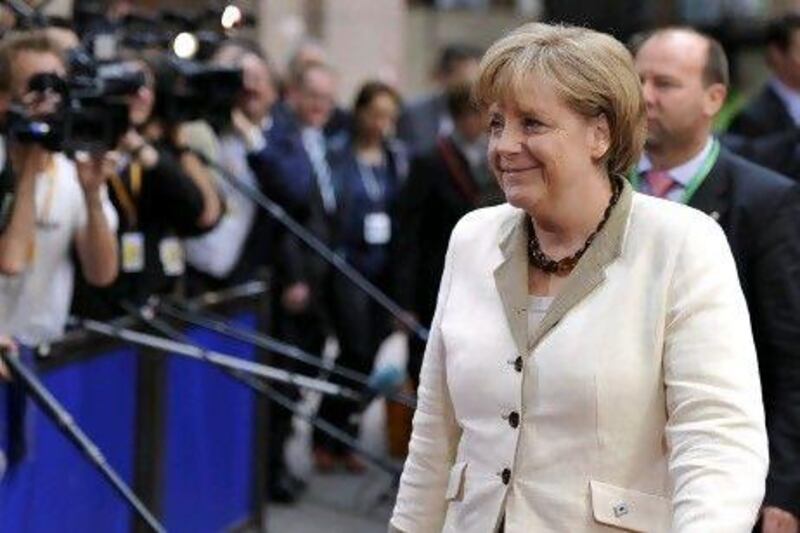The risk of Greece defaulting on its debts worried Dubai investors into a sell-off that forced the emirate's stock market into decline yesterday.
Prospects of a Greek government default on its bond repayments emerged as European officials held a summit in Brussels aimed at stemming the sovereign debt crisis.
"As soon as there was a sign of risk, local investors pulled their money out," said Marwan Shurrab, the chief trader at Gulfmena Alternative Investments in Dubai.
The Dubai Financial Market General Index recovered some of its initial losses, however, but still closed down 0.1 per cent at 1,523.42.
Fund managers said fears about euro contagion overshadowed a positive earnings season in the UAE and kept traders away from the markets.
"All of the major stocks in the region have reported second-quarter profits either in line with consensus or beating estimates. The results have been pleasing, but unfortunately, liquidity, which is triggered by sentiment, is negative and being influenced by global events," said Sachin Mohindra, the manager of InvestAD's GCC Focused Fund in Abu Dhabi.
"Regional and local investors are not looking at the fundamentals of a company but what is happening in the euro zone."
Local anxieties about the crisis mirrored the response of investors globally. The euro dropped against the dollar for the first time in three days.
Euro leaders met for the first time in a month as they sought to hammer out a deal over a new Greek bailout.
It followed Angela Merkel, the German chancellor, and Nicolas Sarkozy, the French president, sealing an agreement on Greece after seven hours of talks in Berlin. Details of their discussions were expected to be released during the summit in Brussels.
Governments were considering a guarantee of Greek debt in the event of a default, two officials told reporters in the Belgian capital.
"The indirect impact [of a default] would be a significant increase in risk aversion," said Mahdi Mattar, the chief economist and head of research of CAPM Investment in Abu Dhabi. "Since we [in the UAE] are a frontier market, the inflow of funds would be reduced and local investors would be more cautious."
Europe's unfolding debt saga has already put the brakes on fund-raising by companies and governments in the Middle East. Dolphin Energy, a gas production and pipeline company based in Abu Dhabi, and the malls operator Majid Al Futtaim Holding have both recently postponed bond issues until market conditions improve.
Having been granted €110 billion (Dh581.52bn) in financial aid last year, Greece requires tens of billions more to stabilise its economy as it is unable to raise cash through global markets. But many investors increasingly concede that some sort of reduction of Greece's €340bn debts will still be required.
The prospect of forced haircuts has appeared unattractive to many EU officials so far. Instead, consideration has been given to a support package under which the private sector such as banks would give Greece an extension to repay its debts.
"Ultimately, decisions made around the magnitude and type of private-sector involvement are likely to have profound effects on European financial markets, as well as the future of Greek finances," Nomura said in a research note yesterday.
Any negative impact on European banks could in turn hurt the Middle East and North Africa (Mena) region's financial system.
About 10 per cent of the foreign exposure of peripheral European and French banks is related to UAE lenders, estimated Nomura in a research report released this week. Other exposure ranged from more than 90 per cent in the case of Moroccan banks to 40 per cent for Saudi Arabian lenders.
The Mena region's banks were "meaningfully" exposed to Europe, the report said.






